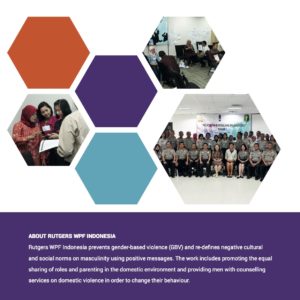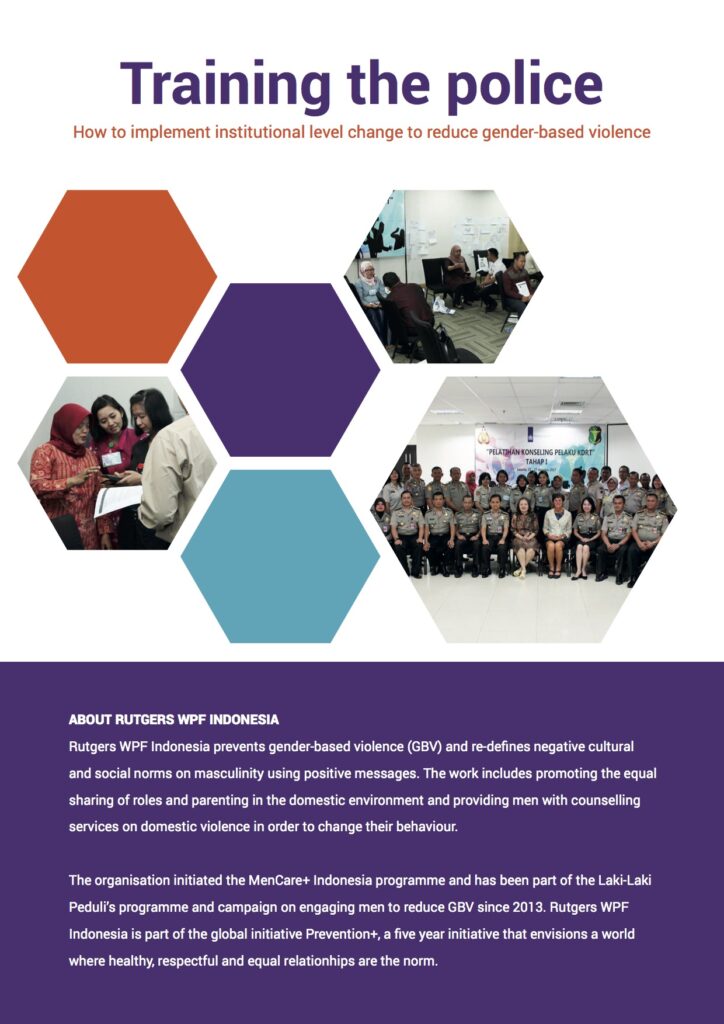This Prevention+ case study highlights Rutgers WPF Indonesia work to prevent gender-based violence (GBV) and re-define negative cultural and social norms on masculinity using positive messages. The work includes promoting the equal sharing of roles and parenting in the domestic environment and providing men with counseling services on domestic violence in order to change behavior. On the institutional level, Rutgers WFP Indonesia gives trainings to the national police and works on improving referral systems for local police handling GBV cases.
Prevention+ is a five-year, multi-country program that envisions a world where healthy, respectful, and equal relationships are the norm. To contribute to making this a reality, the program addresses the root causes of gender-based violence: the social, economic, religious, and cultural contexts that shape attitudes and behavior that lead to violence. Prevention+ takes a multi-level approach in order to ensure long-lasting impact, and to transform the mutually reinforcing social and structural factors that support gender-based violence and allow it to persist. The program actively engages young and adult men as partners and advocates for change – alongside young and adult women – to challenge and transform harmful gender norms and practices.
View the other Prevention+ case studies here: Pakistan, Rwanda, Lebanon and Uganda. Prevention+ is led by a consortium of Rutgers, Sonke Gender Justice, and Equimundo, and funded by the Dutch Ministry of Foreign Affairs.
Resources
English
Training the Police: How to Implement Institutional Level Change to Reduce Gender-Based Violence
PDF Preview
